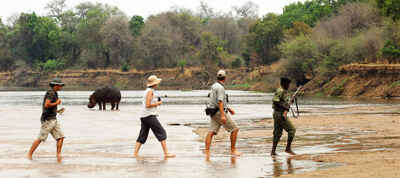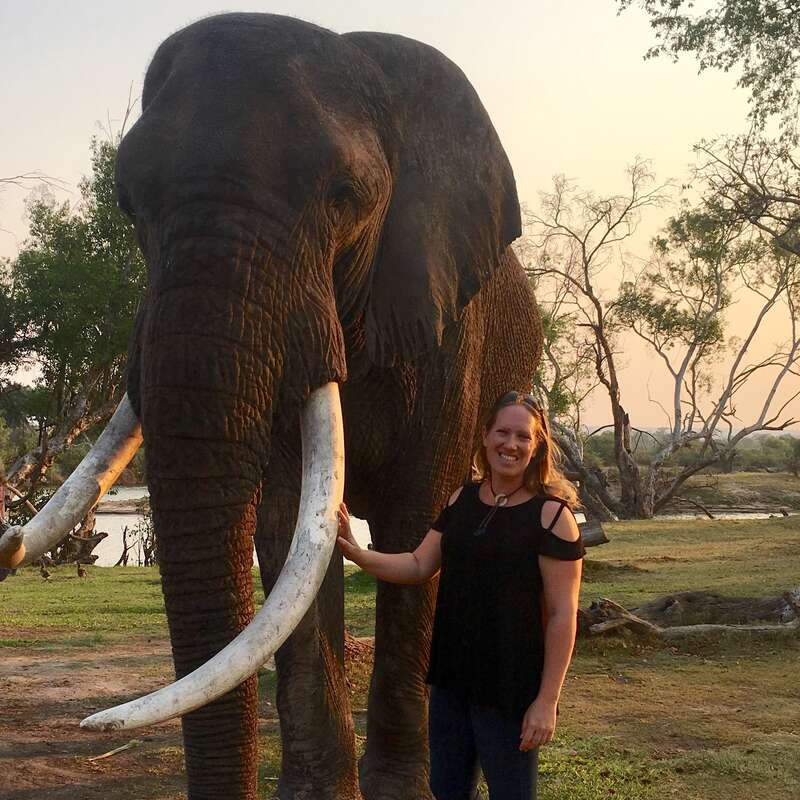About Mwaleshi Camp
Mwaleshi is a great little walking camp with excellent guides in one of the remotest areas of Zambia
One of only three camps in North Luangwa, Mwaleshi is a remote, rustic place that specialises in walking safaris.
If you love walking in a vast, unspoilt wilderness with simple but comfortable accommodation and good food, then Mwaleshi is the place for you. North Luangwa is one of the least commercialised national parks in Africa. Thanks to the commitment and dedication of conservation organisation Frankfurt Zoological Society and the Zambia Department of National Parks and Wildlife, it’s now thriving and offers excellent wildlife sightings. Sister camp to Tafika, Mwaleshi is part of Remote Africa Safaris, hence its guides are superb. They bring the best out of your walking experiences, often tracking big game, getting (safely) close to lions or herds of buffalo. Back at camp, enjoy the slow, relaxing pace, maybe wallowing in the Mwaleshi River or just dozing on a day bed outside the reed rooms, which are built afresh every year. The main building with a small lounge, bar and dining area, is just as relaxing and not a single nail has been used in its construction. Brightwell the chef is a genius, creating fabulous meals on an old cast-iron stove, an open fire and an earth oven.
Our view
Mwaleshi Camp is one of the most remote camps in Africa. The ultimate wilderness retreat, it’s exactly how a true bushcamp should be: small, intimate and very individual. The guides here are among the best safari guides we have encountered, which guarantees the exceedingly high level of knowledge and experience that draws many of our travellers back on a regular basis.
Accommodation
4 chalets
Children
OK for ages 12+
Open
15 June to 31 October
Activities

Birdwatching

Guided walking safari
Traveller reviews of Mwaleshi Camp
67 real, un-edited reviews from Expert Africa's travellers.
Arrived 27 Sep 2024, 4 nights
"Mwaleshi Camp stay"
Overall rating: Excellent
Arrived 9 Oct 2024, 2 nights
"Mwaleshi Camp review"
Overall rating: Excellent
Arrived 26 Aug 2024, 3 nights
"Mwaleshi Camp review"
Overall rating: Excellent
Arrived 29 Jul 2024, 2 nights
"Mwaleshi Camp review"
Overall rating: Excellent
Arrived 23 Jul 2024, 2 nights
"Mwaleshi Camp experience"
Overall rating: Excellent
Arrived 6 Jul 2024, 3 nights
"Mwaleshi Camp review"
Overall rating: Excellent
Arrived 21 Jun 2024, 4 nights
"Mwaleshi Camp review"
Overall rating: Excellent
Arrived 16 Oct 2023, 2 nights
"Mwaleshi Camp review"
Overall rating: Excellent
Arrived 16 Oct 2023, 3 nights
"Mwaleshi Camp review"
Overall rating: Excellent
Arrived 6 Oct 2023, 4 nights
"Mwaleshi Camp review"
Overall rating: Excellent
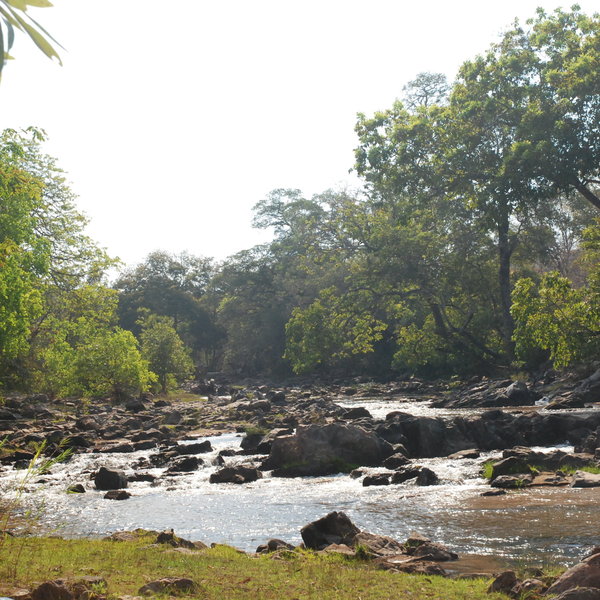
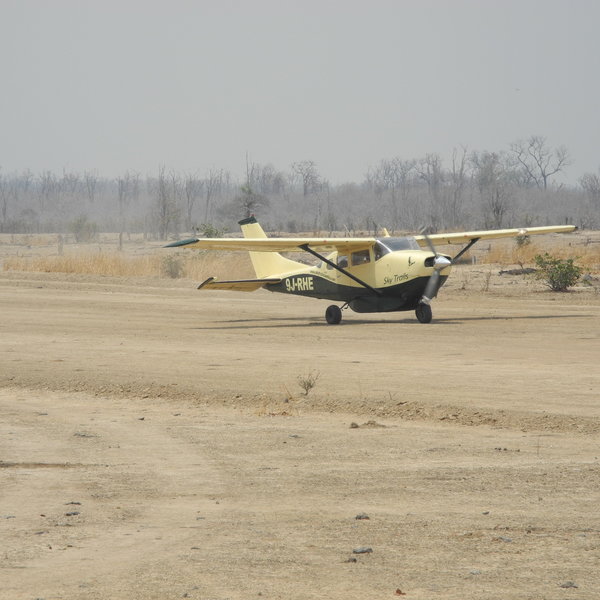
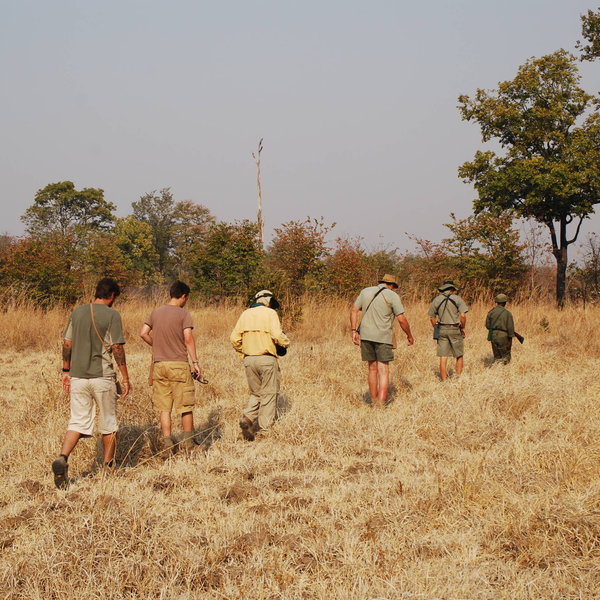
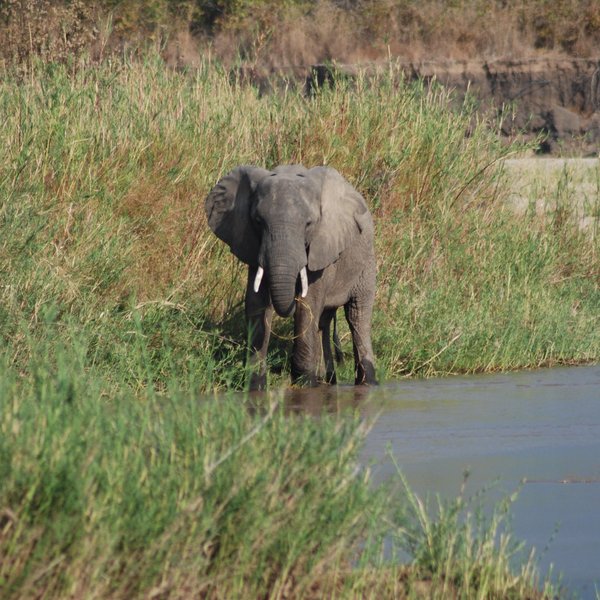
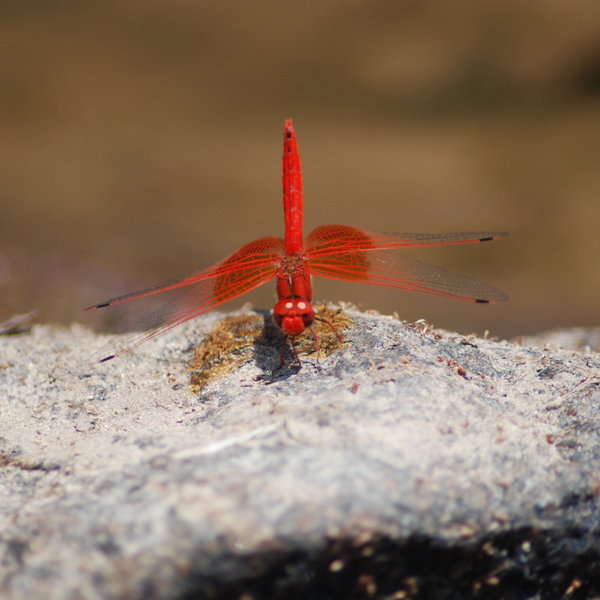
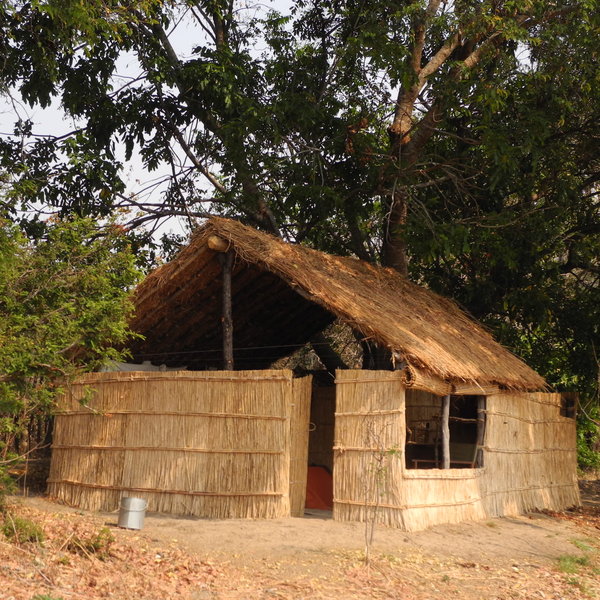
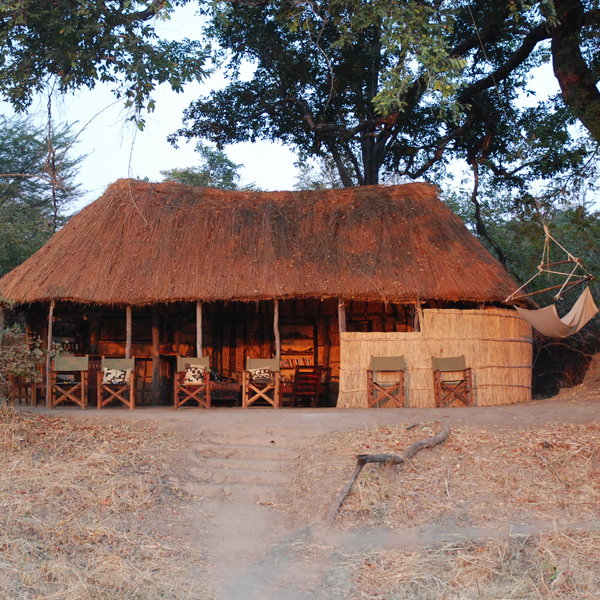
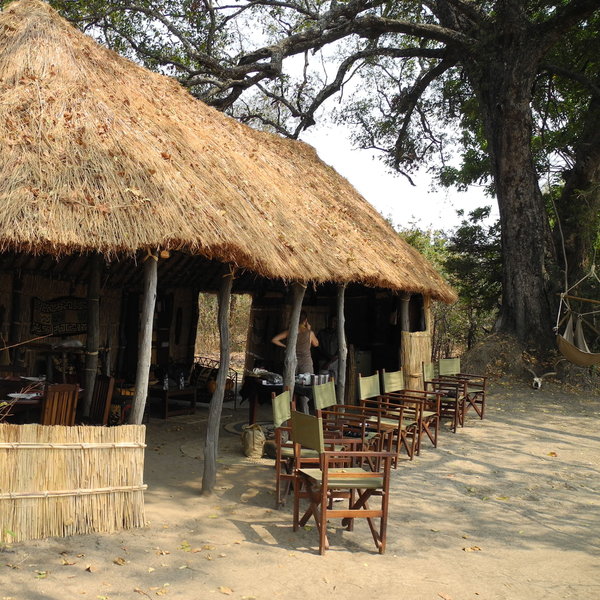
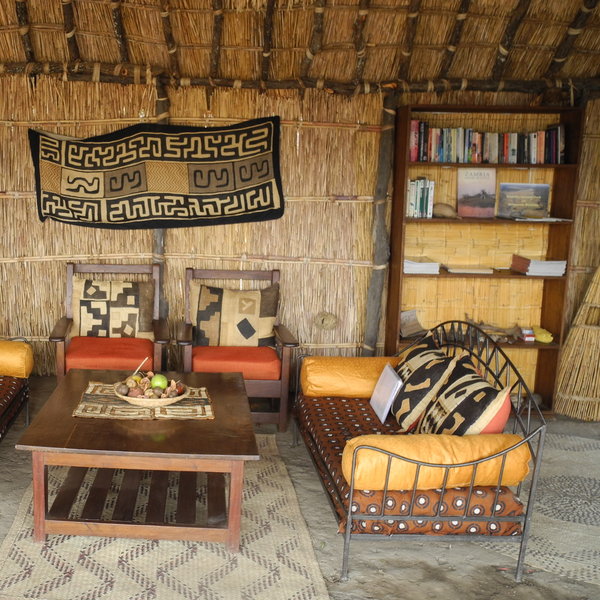
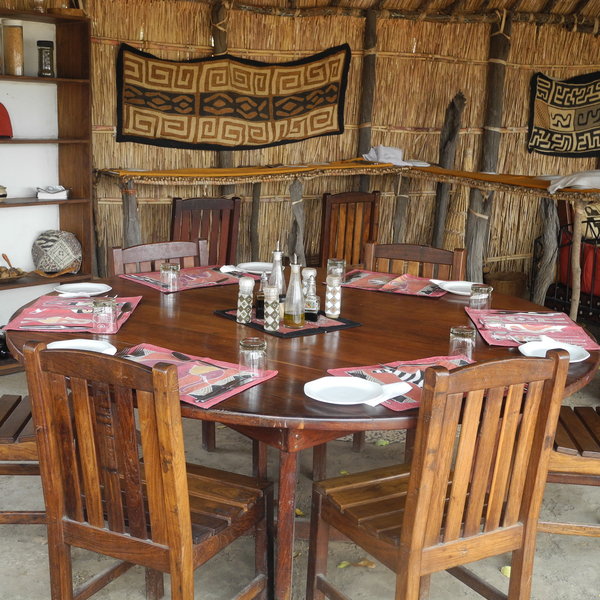
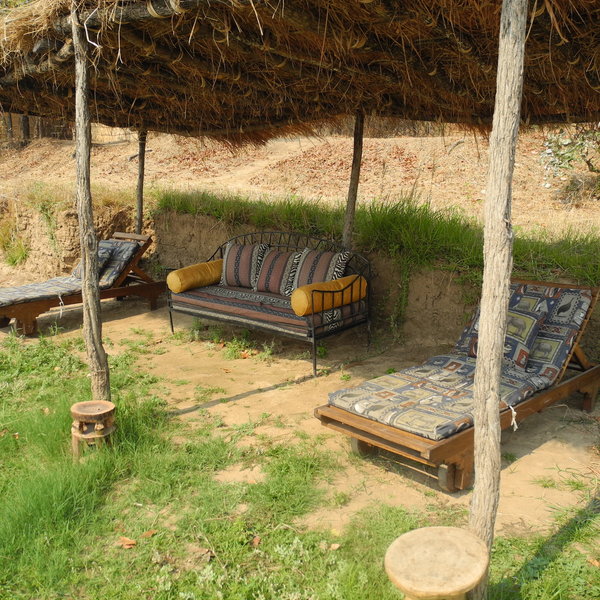
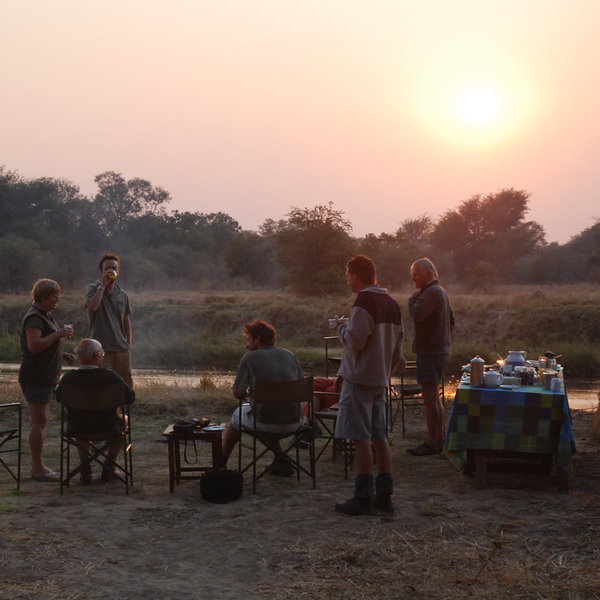
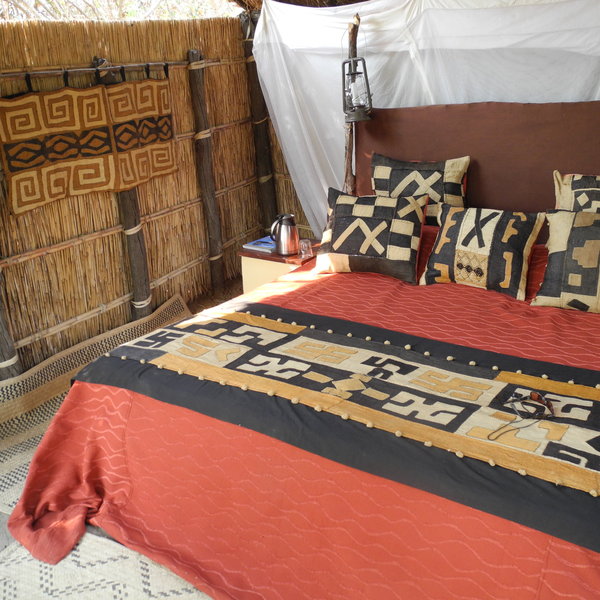
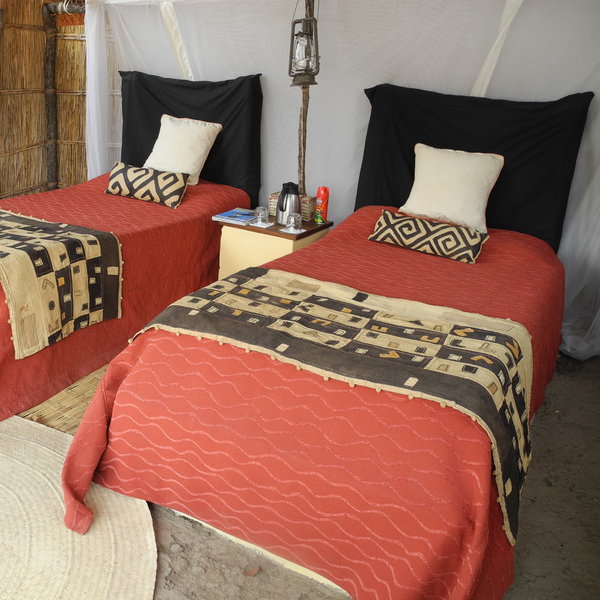
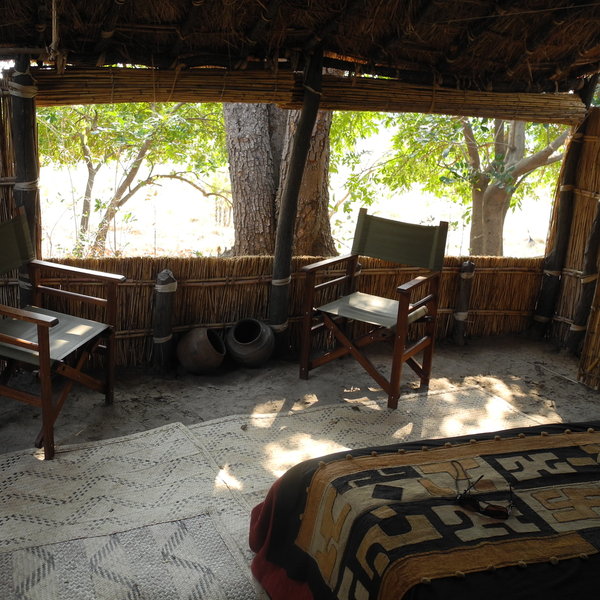
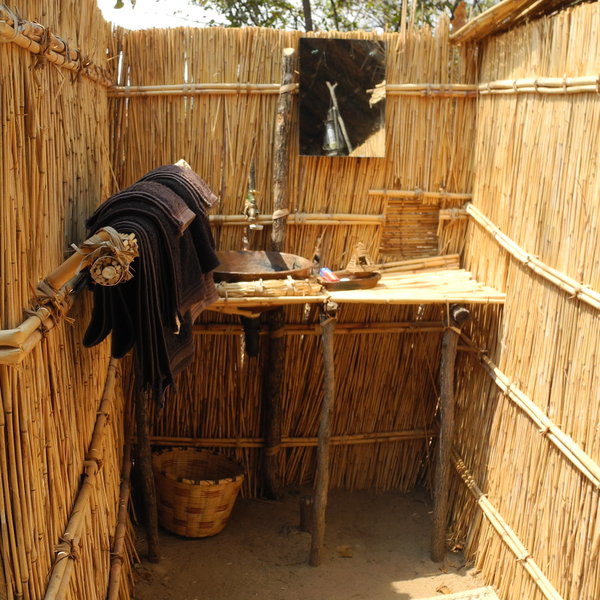
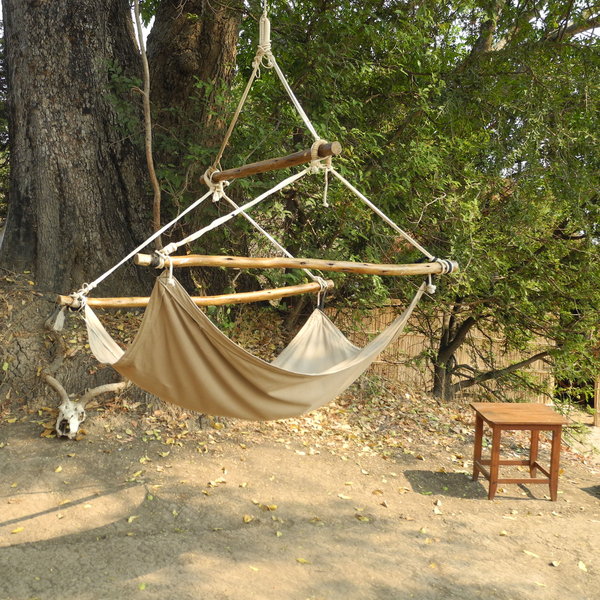
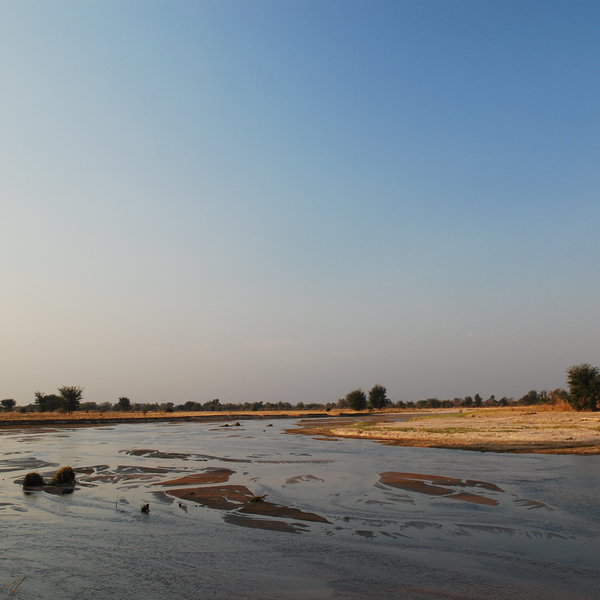
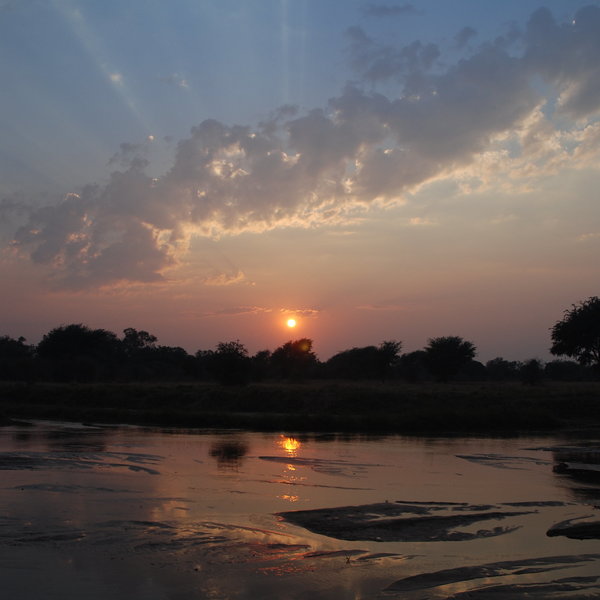
Expert Africa's gallery
When we travel we take lots of photos ourselves to give you a real and un-edited view of the safaris. See our 45 pictures and 1 videos of Mwaleshi Camp to get the candid view.
View gallerySafaris visiting Mwaleshi Camp
Just ideas, we'll always tailor-make a trip for you
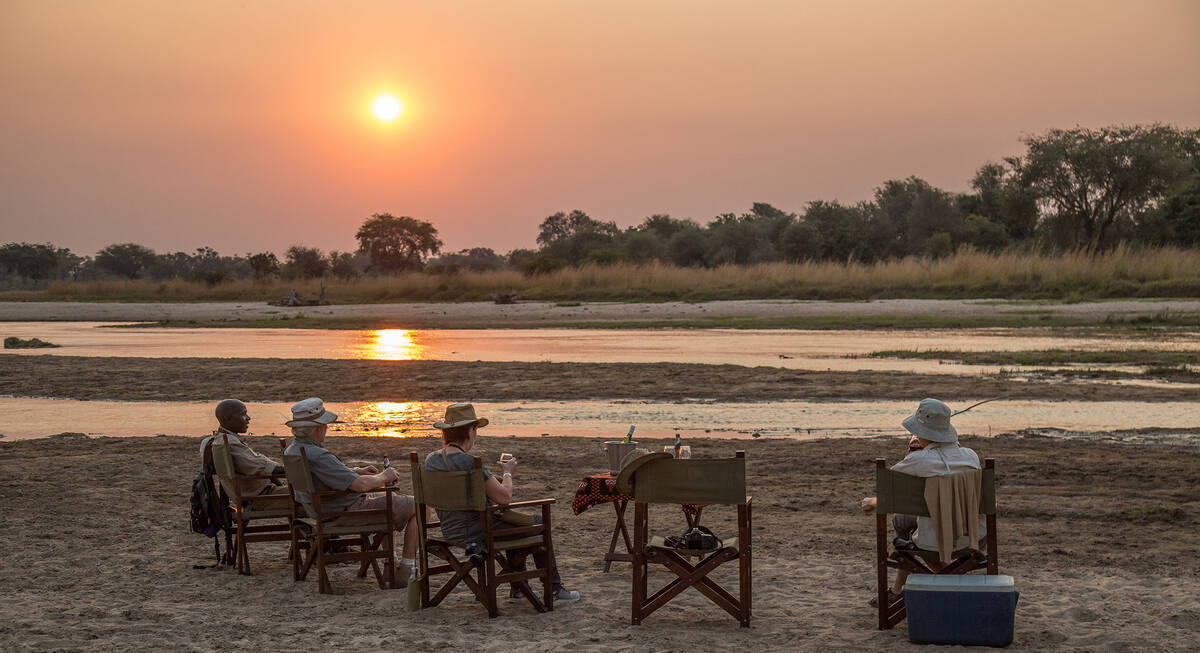
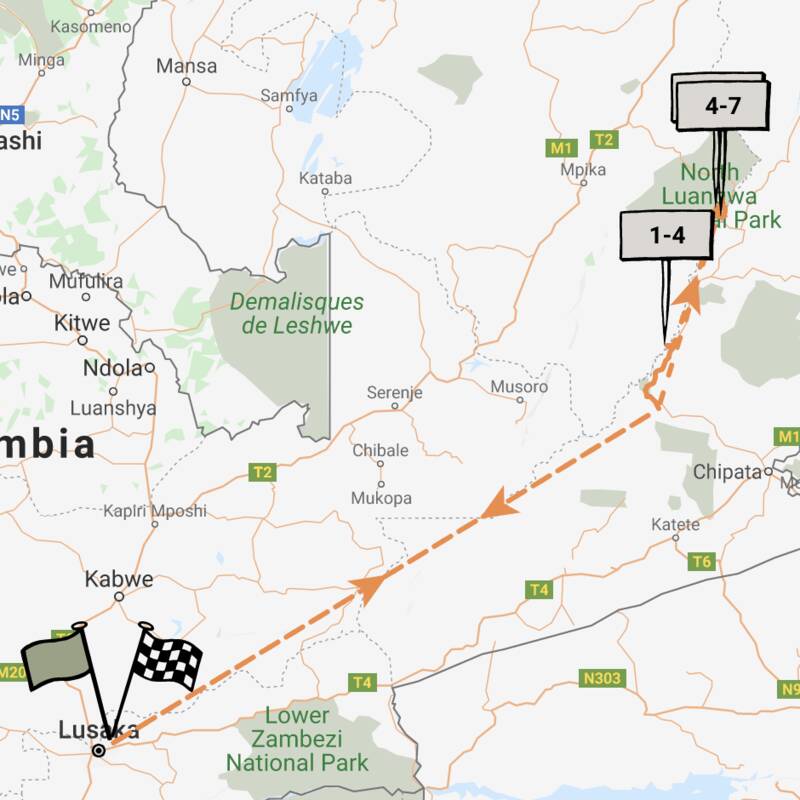
Giraffe Safari
9 days • 3 locations • 1 country
LUSAKA AIRPORT TO LUSAKA AIRPORT
A safari to the remotest parts of Zambia’s Luangwa Valley. Perfect for experienced safari goers and first-time Africa adventurers. Explore with expert guides whilst staying at small bushcamps.
Visiting South Luangwa, North Luangwa
US$8,700 - US$10,430 per person
Mwaleshi Camp: Our full report
Set in a seriously remote part of Zambia’s North Luangwa National Park, the seasonal Mwaleshi Camp stands ...
... beside the crystal-clear Mwaleshi River, 10km from its confluence with the Luangwa. It’s a small, rustic and unpretentious walking camp in a remote and peaceful wilderness area.
Mwaleshi Camp opens only in the dry season, between June and October, and is constructed afresh each year from reed and thatch. Facing the river are just four light and airy chalets, with “windows" to the front (expect open spaces rather than glass!), and open eaves too, letting a cool breeze through.
The chalets are furnished simply, but very comfortably. Canvas directors' chairs sit by the windows – and one of the chalets boasts a hammock under the trees. Twin or double beds with stone headboards and walk-in mosquito nets face the window too, and on the bedside tables are mosquito spray and a flask of drinking water. A solar light hangs next to each bed, with a small solar lamp to take with you to dinner as a torch if necessary. There’s hanging space (with a couple of kikois for you to use during your stay) and two large shelves cater for even the sturdiest luggage.
The en-suite bathrooms are largely open air, albeit mostly shaded by trees, their soft sand floors covered with rattan mats. A separate flush toilet is the only part of the bathroom to have a “roof'” Each morning, a jug of hot water is passed through a “hatch” behind the basin, while hot water for the shower is supplied on request.
Set up on the riverbank, Mwaleshi's main area is understated: a thatched open-sided “chitenje” that overlooks the river. Pull up a bar stool to the polished wooden bar, relax with a wildlife book or magazine in a comfortable armchair or sofa covered in local fabrics, or perhaps in one of the directors’ chairs outside.
Steps cut into the riverbank lead to a firepit right by the river’s edge, where two well-placed sunloungers under a thatched shelter are lapped by the shallow water. The river is usually shallow enough (often just a few inches deep!) to be a safe and very refreshing place to cool off. But lions roaring close by leave no doubt that this really is the wild African bush.
Mwaleshi combines very naturally into a longer trip including its sister camps in the South Luangwa National Park: Big Lagoon Camp, Chikoko Tree Camp and the base for the group, Tafika. Big Lagoon Camp and Chikoko Tree Camp are small walking camps, very much like Mwaleshi, whereas Tafika also offers 4WD safaris and night drives. Keen walkers will often arrange for a week in South Luangwa, walking between the three camps there, followed by three–five nights at Mwaleshi to experience the “North Park”.
In recent years, Mwaleshi has been joined in North Luangwa by a sister-camps Takwela, which offers both walks and also game drives. Takwela combines very well with Mwaleshi, allowing guests to be able to experience a mix of activities in this remote national park.
Activities
Birdwatching
Guided walking safari
- Mwaleshi focuses solely on walking safaris
- The camp doesn't offer game drives, although a vehicle is often used to drive guests to more remote walking areas. Walks from the camp normally last about three–four hours, and are fairly relaxed – so only a modest level of fitness is required.
The aim is to track and see some of the area's great wildlife, not to provide an endurance test or route march. There's usually a stop for refreshments, such as mid-morning tea, cake and, refreshingly, fresh fruit. The terrain in North Luangwa National Park is fairly flat but is occasionally uneven underfoot – so do bring sturdy shoes. At hat should be key on your packing list, as it can get extremely hot in the park, especially in the later months of the season. On our last visit, we were met on our return to camp with cold flannels and cool drinks made with rehydration salts, both refreshing, and necessary, given the heat.
The wildlife around Mwaleshi is abundant, with a particularly good population of lion and buffalo – as well as large herds of the endemic Cookson's wildebeest, which are rare in the more oft-visited South Luangwa National Park. On our last visit we had the most fantastic walk tracking three male lions, newcomers to the area that were threatening the resident coalitions.
Mwaleshi is run by the team of top-notch guides from Remote Africa Safaris’ led by John Coppinger, they are some of the most experienced walking guides in Africa. Typically, one of the guides comes to the North Luangwa with a small team of staff to build the camp in mid-May, and then stays for much of the season – occasionally swapping with one of Tafika's permanent guides. Our guide was exceptionally knowledgeable, peppering our walks with fascinating stories and explanations. All walks are also accompanied by an armed scout, whose presence came into its own when we chanced upon an injured hippo that was resting in a thicket. The situation was swiftly dealt with by him and our guide, who turned the group around efficiently and safely out of potential harm’s way.
Mwaleshi’s lies near the area where black rhino have been re-introduced during the past few years. The project is protected by a certain amount of secrecy, to aid anti-poaching efforts, but the camp estimates that there is now a healthy population of rhino in the park. That said, don’t come here expecting to see them; the team at Mwaleshi only spotted rhino a couple of times per season. The interest here is the conservation story behind the relocation, and the incredible efforts by the team involved to reintroduce these endangered animals into the park.
Families & children
- Attitude towards children
- Sensible children aged 12 and over are welcome at Mwaleshi.
- Property’s age restrictions
- Minimum age 12 years
- Special activities & services
- None
- Equipment
- None
- Generally recommended for children
- We endorse Mwaleshi’s restriction to children above the age of 12, and recommend it only for mature children who have had previous walking experience in Africa.
- Notes
- Mwaleshi is open to the bush and the river, so parents or guardians need to be constantly aware of their children's whereabouts. They should note, too, that there were a few tsetse flies about when we last visited, as children tend to react more seriously than adults to the bites.
Food & drink
- Usual board basis
- Full Board & Activities
- Food quality
- Meals at Mwaleshi are served either in the main “chitenje” or on the banks of the Mwaleshi River. The food on our last visit in October 2018, as on previous occasions, was consistently delicious and very well presented. With sufficient notice, the camp can cater to a range of dietary requests.
The morning usually starts with a light breakfast around the campfire before your first walk of the day, followed by brunch on return to camp. After a relaxing siesta, tea and freshly baked cake are enjoyed before the evening walk, and then a full three-course dinner is served at around 7.30pm.
Our breakfast was a selection of cereals and fresh papaya, as well as eggs and sausage, with tea and coffee to drink. Toast was grilled over the campfire.
Our buffet brunch included Mexican chicken stuffed tortillas, a green salad and rice fritters, served with freshly baked bread and finished off with fresh fruit or banoffee pie.
Dinner is a slightly more formal occasion. Our first night we enjoyed aubergine, tomato & cheese parcels to start, followed by pork stir-fry with rice and grilled vegetables, then a delicious apple crumble for dessert. The second night of our stay, the dining table was moved down next to the river, under the stars. To start we had apple soup, served with freshly baked rolls, then a main course of delicious roast beef, roast potatoes, roasted carrot and beetroot, and a green salad. Chocolate mousse followed, and there’s always tea, coffee or drinks available to round off your meal. - Dining style
- Group Meals
- Dining locations
- Indoor and Outdoor Dining
- Further dining info, including room service
- No
- Drinks included
- Water is brought from the river, boiled and then filtered twice – it is safe to drink, though the camp has bottled water if guests wish.
Soft drinks, house wine and local spirits are included in the rates, but fine wines, champagne and imported spirits and liqueurs must be requested in advance, and will be charged as extras.
Our travellers’ wildlife sightings from Mwaleshi Camp
Since mid-2018, many of our travellers who stayed at Mwaleshi Camp have kindly recorded their wildlife sightings and shared them with us. The results are below. Click an animal to see more, and here to see more on our methodology.

100% success

100% success

96% success

90% success

77% success

71% success

60% success

33% success

22% success

6% success

0% success

0% success

0% success

0% success

0% success
Getting there
- Location
- North Luangwa National Park, Zambia
- Ideal length of stay
- We’d recommend between three and five nights at Mwaleshi. The camp is probably best combined with one or more of its sister camps: Takwela in the North Luangwa (opened in July 2019) or, in the South Luangwa National Park, Big Lagoon Camp, Chikoko Tree Camp and Tafika. As the most remote of these very isolated camps, Mwaleshi is often visited last.
- Directions
- Mwaleshi is either a 40-minute flight from Mfuwe Airport or 30 minutes from Lukuzi Airstrip (for Tafika). You’re then just a 15-minute drive from the airstrip to camp.
- Accessible by
- Fly-and-Transfer
Special interests
- Solo safaris
- Set in beautiful surroundings, in the remote North Luangwa, Mwaleshi Camp focuses purely on walking safaris; it’s one of Africa’s top walking camps with very high guiding standards! It is a great choice for a solo traveller holiday and charges only a low single supplement.
- See ideas for Solo safaris in Zambia
- Birdwatching safaris
- The guides at Mwaleshi are consistently top-notch for birdwatching. Most flora and fauna are common to the whole Luangwa Valley, but specials include the white-winged starling, the chestnut-mantled sparrow weaver and the yellow-throated longclaw.
- See ideas for Birdwatching safaris in Zambia
- Walking safaris
- Mwaleshi is one of Africa's top walking camps, dedicated to walking safaris, and run by Remote Africa Safaris, one of the Luangwa Valley's most experienced safari companies. Walks from Mwaleshi usually involve cooling paddles across the shallow Mwaleshi River. Bliss!
- See ideas for Walking safaris in Zambia
Communications
- Power supply notes
- There are facilities for charging camera batteries in the main area at Mwaleshi. Travellers should bring their own adaptors.
- Communications
- There is no cellphone reception although the camp is in constant radio contact with its main camp, Tafika.
- TV & radio
- No; this is a particularly remote bushcamp.
- Water supply
- Other
- Water supply notes
- The bathrooms at Mwaleshi have flush toilets and plumbed taps and basins. Bucket showers are available throughout the day, with hot water available on request.
Health & safety
- Malarial protection recommended
- Yes
- Medical care
- Staff are trained in first aid, and first aid kits are located in the office and all vehicles. The closest doctor is in Mfuwe – a 50-minute flight from Mwaleshi, then a road transfer of approximately 25 minutes.
- Dangerous animals
- High Risk
- Security measures
- Both your guide and the camp staff stay in camp with you, and guests are escorted to their room in the hours of darkness.
- Fire safety
- There are fire extinguishers in all common areas and sand buckets outside each chalet.
Useful info
- Disabled access
- On Request
- Laundry facilities
- A complimentary laundry service is included, but this does not include ladies underwear; washing powder for this is provided in each bathroom. Note that clothes are hand washed and coal ironed.
- Money
- There is a secure box in the staff quarters if you wish to leave valuables there. No exchange facilities are provided.
- Accepted payment on location
- No money is accepted at Mwaleshi. Any necessary payments may be made at Tafika which accepts cash in UK pounds, US dollars, euros and Zambian kwacha. Visa and Mastercard are accepted, with a small surcharge.
Plan and book your trip with Expert Africa
All of our trips are tailor-made, so we'll always adapt them to suit you. Talk to an Expert and let us plan and arrange your perfect trip.

Talk to an Expert
Call or email us now! We’ll match you with the Specialist in our team who is best suited to help you. Then together we can start planning your trip.

Set up your itinerary
Based on our experience and your ideas, your specialist will create a detailed, costed itinerary. We’ll refine it together, until we have a trip that you’re perfectly happy with.

Prepare for your trip
The same Specialist will make the seamless arrangements for your trip, send you detailed travel documents, and be available to answer any questions before you depart.

Travel with peace of mind
After you set off, you’ll be cared for by our partners in Africa, most of whom have worked with Expert Africa for decades. And if you ever need us urgently, we’re available 24/7.

When you return
We love to learn about your trip, and so will always be grateful if you’ve the time to give feedback to your Specialist when you return.
Mwaleshi Camp's location
Look closer at the environment and surroundings of Mwaleshi Camp.
Other lodges in North Luangwa National Park
Alternative places to stay in this same area.
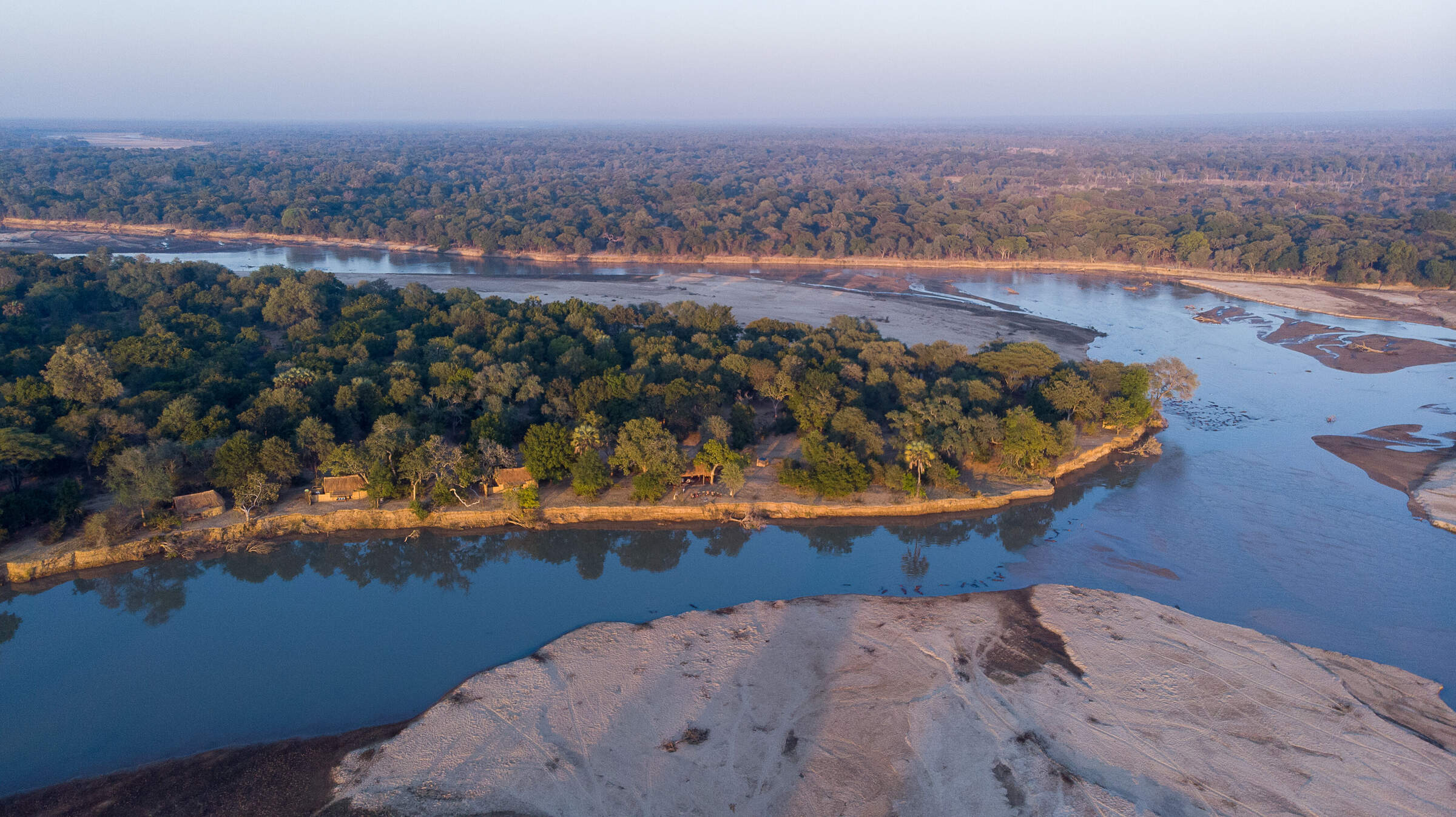
Takwela Camp
Remote, wild and very small, Takwela Camp offers excellent guiding on both walking safaris and game drives in Zambia's North Luangwa National Park.
When to go to North Luangwa National Park
Our month by month guide: What it's like to visit Mwaleshi Camp in North Luangwa National Park
Jan
Feb
Mar
Apr
May
Jun
Jul
Aug
Sep
Oct
Nov
Dec
North Luangwa National Park in January
In North Luangwa, January marks the peak of the wet season. Expect daily downpours, often lasting several hours, punctuated by brief sunny intervals. Temperatures soar above 30°C/86°F, accompanied by high humidity.
The landscape is a lush, green paradise, but this abundance of vegetation and water allows the larger game to spread out, making it much harder to spot. Birdlife thrives during this period, with numerous migratory species present – and many species sporting beautiful breeding plumage.
Many roads in the national park are impassable, limiting access. Safari camps in North Luangwa are closed and visitors are very scarce.
- Wet season peak, warm and moist climate
- Verdant scenery, ideal for nature photography
- Wildlife scattered, challenging to spot
- Vegetation high; no walking safaris
- Safari camps are closed
Our view
This is not a great time to visit
Weather in January
North Luangwa National Park in February
February in North Luangwa National Park is at the heart of the rains. Dramatic thunderstorms are a daily occurrence, often followed by clear skies.
The park remains verdant and waterlogged, making both getting around and game viewing challenging. However, patient observers with the logistics to get here may be rewarded with sightings of animals with their young.
The Mwaleshi River, swollen by the rains, can’t be easily crossed – adding to the very wild and remote feel of the park. Navigating by canoe would probably be easier than by safari vehicle!
The lush scenery and dramatic skies create excellent photographic opportunities for landscape enthusiasts who can get here.
- Rainy season continues, warm and humid weather
- Lush landscapes, but large animals hard to see
- Many birds resplendent in breeding plumage
- River levels high, altering park dynamics
- Scarce visitors, safari camps closed
Our view
This is not a great time to visit
Weather in February
North Luangwa National Park in March
March sees the gradual tapering of North Luangwa's rainy season. While heavy showers persist, they become less frequent. The park is at its most verdant, with water bodies at their fullest. Temperatures remain high, often exceeding 30°C/86°F, with considerable humidity.
Wildlife viewing remains challenging due to the thick vegetation, but predator activity increases as they take advantage of vulnerable young prey. Some palearctic migrant bird species start to migrate back north. As the skies begin to clear more frequently, the combination of dramatic clouds and lush landscapes provides stunning photographic possibilities.
- Final month of wet season, balmy and damp
- Abundant greenery with plenty of smaller animals
- Antelope species have young around
- Access to ( and safaris in) the park are challenging
- Safari camps remain closed
Our view
This is not a great time to visit
Weather in March
North Luangwa National Park in April
April marks a transition in North Luangwa as the heavy rains give way to occasional light showers. The landscape remains lush and green, but wildlife starts to become more visible as vegetation begins to thin. Safari camps remain closed. The levels of the Mwaleshi River begin to recede, exposing sandbanks that attract the odd basking crocodile.
This month offers a blend of green scenery and improving wildlife sightings. The air is clear, providing excellent visibility for photography. As visitor numbers are still low, those who visit can enjoy a sense of exclusivity in the park.
- Rainfall tapering off, warm and occasionally wet
- Verdant surroundings, wildlife viewing improving
- Rivers full, altering animal movement patterns
- More roads becoming accessible
- Very low numbers of safari visitors
Our view
This is not a great time to visit
Weather in April
North Luangwa National Park in May
May heralds the beginning of the dry season in North Luangwa. Rain becomes a rarity; most days are clear and sunny. Temperatures and humidity continue to reduce, with daytime highs around 25°C/77°F. The landscape begins its transformation from lush green to golden hues.
Wildlife viewing improves significantly as vegetation thins and the animals start appearing around permanent water sources. Most safari camps start to make ready or even reopen around the end of May, offering the first walking safaris of the season. The clear air and thinning vegetation provide excellent conditions for photography. May offers a good balance of comfortable weather, improved game viewing, and relatively low visitor numbers.
- Dry season onset, mostly clear and mild days
- Landscape still green, excellent for photographers
- Wildlife sightings becoming more frequent
- Vegetation thinning and drying
- Safari camps make ready, some reopen
Our view
A good time to visit, with pros & cons
Weather in May
North Luangwa National Park in June
June in North Luangwa National Park is characterised by cool, dry conditions. Daytime temperatures hover around 23°C/74°F, but nights can be chilly, dropping to around 10°C/50°F. The absence of rain and decreasing humidity make for comfortable safari conditions and lovely walking.
The thinning vegetation significantly improves visibility for game viewing. Camps in the park are open and operational during June. The Mwaleshi River becomes a focal point for wildlife safaris, offering excellent wildlife viewing. The clear skies and golden light make for stunning sunrise and sunset photography.
- Consistently sunny days, cooler nights
- Ideal conditions for guided walking safaris
- Animal viewing opportunities increasing
- Safari camps open and accessible
- Almost all roads now accessible
Our view
A very good time to visit
Weather in June
North Luangwa National Park in July
July brings winter to North Luangwa, with cold nights and mild days. Temperatures can drop to single digits at night but warm up to the low 20s°C/70s°F during the day.
The landscape is now predominantly golden, with much vegetation becoming drier. Wildlife is seen more often around the remaining water, particularly the Mwaleshi River, leading to excellent game viewing opportunities there.
Walking safaris in the national park are at their prime, with cool temperatures and good visibility. All camps are open and North Luangwa is as busy as it gets – although it remains a remote park with very few visitors. Early mornings can be particularly cold, so warm clothing is essential for game drives; it’s perfect weather for walking safaris.
- Pleasant days, chilly evenings
- Clear skies with very few clouds and no rain
- Vegetation thinning, enhancing visibility
- Wildlife sightings significantly improved
- Prime time for on-foot safari experiences
Our view
A very good time to visit
Weather in July
North Luangwa National Park in August
August in North Luangwa National Park is one of the best months for a walking safari as the days are clear and cloud-free, with wonderfully cool mornings as you start out. The dry conditions increasingly force wildlife to visit permanent water sources, making sightings more predictable. Daytime temperatures are pleasant, in the mid-20s°C/70s°F, even though nights and early mornings remain cold and fresh.
The vegetation has become more sparse, providing excellent visibility for wildlife spotting. There are a few less insects and smaller creatures around than earlier in the year. The dry conditions sometimes lead to a haze on the horizon, which can affect long-distance views and photography.
- Dry conditions, warm days and cool nights
- Optimal weather for walking safaris
- Excellent wildlife viewing near water sources
- Vegetation thinning out so easier to view wildlife
- Some haze may affect long-distance views
Our view
Fantastic: the very best time to visit
Weather in August
North Luangwa National Park in September
September is usually considered ‘the’ best month for visiting North Luangwa National park on safari. Daytime temperatures start to climb, reaching the low 30s°C/high 80s°F, while nights become more temperate. The landscape is dry, with excellent visibility for game viewing through drying vegetation.
Wildlife concentrates more around remaining water sources, leading to frequent and diverse sightings. It’s so shallow in parts that you can paddle across the Mwaleshi River – or cool your feet during a walk. Walking safaris are warming up, but still not too hot and offer thrilling close encounters with animals.
The tiny camps here are sometimes full, so planning ahead is essential. The conditions can create a heat of heat, dust and smoke which affects photography.
- Dry, warm days and mild nights
- Prime month for observing wildlife
- Great time for walking safaris
- Rivers and waterholes shrinking
- Landscape hazy from dust and bush fires
Our view
Fantastic: the very best time to visit
Weather in September
North Luangwa National Park in October
October marks the end of the dry season in the national park, bringing intense heat and anticipation of the rains. Daytime temperatures in North Luangwa climb and frequently exceed 35°C/95°F, with nights remaining very warm.
The landscape is parched, with most vegetation brown and lifeless. Wildlife viewing reaches its peak as animals desperately seek out the few remaining water sources. Predator-prey interactions are common, offering exciting but sometimes intense viewing experiences. Walking safaris are challenging due to the heat. Safari camps start to close towards the end of the month. The dry conditions can create a haze of heat and dust, affecting visibility and photography.
- Optimal chances to see the wildlife
- Very warm temperatures, day and night
- Environment feels harsh and arid with the heat
- Water sources scarce, concentrating animals
- Hazy atmosphere, challenging for photographers
Our view
A very good time to visit
Weather in October
North Luangwa National Park in November
November typically sees the return of rains to North Luangwa, though the timing is always unpredictable. Early in November, conditions remain hot and dry, but when rains arrive, the landscape begins a rapid transformation.
Temperatures remain high, often above 30°C/86°F, with increasing humidity. Initial rains bring rapid greening of the landscape and dispersal of wildlife. Game viewing becomes more challenging as animals are no longer confined to limited water sources.
Safari camps are closing as access becomes difficult: bush roads become impassable when heavy rains start. The rains clears the air of dust and haze, creating vibrant, clear air that is excellent for photography.
- Wet season beginning, hot and muggy
- Increasing likelihood of rainfall
- Wildlife dispersing as vegetation busts into life
- Insects and smaller creatures emerge
- Birds starting to don breeding plumage
Our view
A good time to visit, with pros & cons
Weather in November
North Luangwa National Park in December
December is firmly in the grip of the wet season in North Luangwa National Park. Regular thunderstorms occur, often in the afternoons, followed by periods of sunshine. The landscape becomes increasingly verdant. Temperatures remain high, often exceeding 30°C/86°F, with high humidity.
Wildlife viewing is challenging as animals disperse across the now water-rich environment. However, this is an excellent time for birdwatching, with many migratory species present. Safari camps in the park are closed and very few visitors are here to witness the park's dramatic seasonal transformation.
The combination of stormy skies and green landscapes offers unique photographic opportunities.
- Rainy season underway, warm and wet days
- Wildlife harder to spot in thick vegetation
- Lush scenery, improved photographic conditions
- Safari camps now closed for the season
- Very few visitors as most roads inaccessible
Our view
This is not a great time to visit
Weather in December

Looking for inspiration on where to travel next?
Visit our trip chooser to explore your options and find inspiration for your perfect African adventure
Inspire me